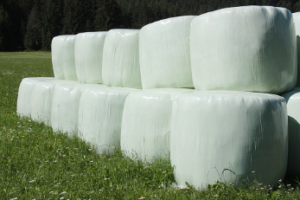Baling twine is a beneficial product that can be used for numerous tasks. From mend fences and attaching tractor parts to much more, baling twine has endless uses!
However, it’s essential to know that baling twine can be hazardous for animals. Additionally, it may clog a baler’s knotter and cause other issues.
Uses
 Baling twine is a string used to secure bales of hay or straw together. It can be produced from various materials, such as natural sisal fibres or synthetic polypropylene. Balers and other machines used in agriculture, industry, and waste disposal often utilise this versatile twine string type.
Baling twine is a string used to secure bales of hay or straw together. It can be produced from various materials, such as natural sisal fibres or synthetic polypropylene. Balers and other machines used in agriculture, industry, and waste disposal often utilise this versatile twine string type.
Baler twine is widely used for binding hay and straw bales together, which then get stacked, strapped down, and shipped off to be sold at markets. This string-like cord can be purchased in spools or rolls for machines explicitly designed.
Baling twine is also widely used in recycling processes. Not only does this reduce waste and free up space in warehouses and storage facilities, but it’s also a cost-effective alternative to traditional paper and plastic disposal methods.
Recycling helps businesses save money on waste management and takes up a lot of valuable space in warehouses or storage facilities. Utilising a baler machine to collect recyclable materials can significantly reduce waste, save space, and keep costs low.
Baling twine has many uses beyond simply securing hay bales. For instance, it can be recycled to create various products.
Baler twine makes an excellent pot scouring pad, as its rough surface scrapes away dried and hardened bits of food while being easy to weave together for a more textured place. It can also be used as part of the cleaning process itself.
Farmers everywhere will find baling twine the ideal solution for all shoelace and boot-tying needs. It keeps your boots together when the laces break and can also be an emergency replacement for broken lace loops. Furthermore, baling twine can help as a temporary fix for damaged fence boards until a permanent solution can be implemented.
Durability
Baling twine uses various materials, such as natural fibres like sisal and hemp. However, the most widely used material is polypropylene (PP).
Baling twine’s durability depends on how often it’s used, but you can take a few steps to help extend its usefulness. First, select strong baling twine appropriate for the hay packed into your baler. Additionally, ensure the twine you purchase has guaranteed feet per carton so you won’t have to reload spools more often than necessary.
You should ensure the twine you buy has the appropriate knot strength for your machine. It refers to how much force is necessary for the knot to break in a baler and may vary based on the size and weight of hay you pack into it. Ultimately, ensure your twine remains strong enough to prevent breaks during use.
Another way to extend the lifespan of your baler twine is by avoiding tight corners. However, doing so can reduce its strength and lead to breaks, knots, and other issues.
Consider selecting baler twine that can withstand extreme conditions, such as a hot summer day or harsh winter storm. Doing so will guarantee your hay stays fresh and nutritious for extended periods.
If you store hay for an extended period, use twine treated with anti-rot and mildew inhibitors. It will keep your hay from becoming mouldy or inedible and discourage rodents from feeding on it.
Hay producers and livestock farmers will benefit from using durable baling twine, saving time and money while using their machinery more efficiently. It also allows you to monitor the number of bales made so that hay is packed securely for storage.
Disposal
Baling twine is used to secure hay bales so they won’t blow away during harvesting, which requires considerable time and effort. Agriculture producers rely on this product for bundling and protecting crops during this time-consuming process.
This recycling site accepts small deliveries of twine and larger shipments by appointment, so make sure the twine is clean and dry for pickup by I90 Reprocessing in Minnesota. The twine is processed into beads used for outdoor tanks, flower pots, and other #5 polypropylene plastic products.